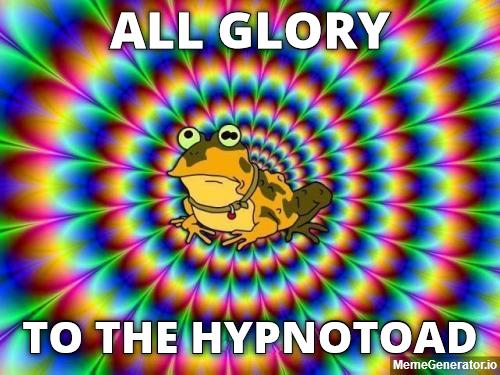I know I am guilty of some of these. Please be aware that this is not the deep cuts of grammar rules and there are always exceptions. English is such a messy language! However, these tips will help you the majority of time.
Adverse means the results are not good, while averse means unwilling.
Example: I am averse to trying nuclear weapons on the giant hypnotoad as the effects might be adverse.
Affect is a verb implying action or change. Effect is usually a noun. When you affect something it produces an effect.
Example: The electricity from the power lines is affecting the giant hypnotoad! It has produced the effect of making the hypnotoad grow larger!
 Ensure vs Insure
Ensure vs Insure
Ensure means to make sure something happens. Insure is what you do when you purchase insurance.
Example: We need to ensure that the giant hypnotoad does as little damage as possible. I hope the people whose houses it has destroyed were insured.
Every day is an adverb while everyday is an adjective that means common. Put the word single between the words every and day in the sentence, and if the sentence still makes sense then you should use two words.
Example: I am tired of getting up every day and finding new monsters attacking our town!
I am tired of getting up every single day and finding new monsters attacking our town! Correct.
Example: Monsters attacking our town has become an every day occurrence!
Monsters attacking our town has become an every single day occurrence! Incorrect.
Monsters attacking our town has become an everyday occurrence! Correct.
If the subject is plural then you use fewer. If the subject is singular you use less.
Example: We have less chance of fighting the giant hypnotoad, now that we have fewer guns.
Farther* always refers to distance. Further relates to amount or time.
Example: We need to move everyone farther away from the giant hypnotoad, and then we can further discuss the plans to end this menace.
It’s is the contraction form of “it is” while its is the possessive pronoun. Replace the word in a sentence with “It is” and see if that makes sense.
Example: It’s a giant hypnotoad, coming to destroy Metropolis!
It is a giant hypnotoad, coming to destroy Metropolis! Correct.
Example: That giant hypnotoad has its own reality show!
That giant hypnotoad has it is own reality show! Incorrect.
That giant hypnotoad has its own reality show! Correct.
Lose is a verb and means to misplace or to suffer a loss. Loose means something that is not tight.
Example: We have too much to lose if we don’t beat the giant hypnotoad. So get that bolt loose so we can fix the laser cannon.
To decide between me and I, change the sentence to having one person and try the words out.
Example: Pat yelled for Chris and I to watch out!
Pat yelled for I to watch out! Incorrect.
Pat yelled for me to watch out! Correct.
Pat yelled for Chris and me to watch out! Correct.
Example: Chris and I dived to the side to avoid the fireball!
Me dived to the side to avoid the fireball! Incorrect.
I dived to the side to avoid the fireball! Correct.
Myself is a reflective pronoun and always the object of a sentence. So if you are talking about yourself (another reflective pronoun) then myself can be used. The other way to test when to use myself is to swap myself out with me and see if works.
Example: If someone knows how to deal with the giant hypnotoad, please contact Pat, Chris, or myself.
Simplified the sentence would read:
Please contact myself. Incorrect.
Please contact I. Incorrect.
Please contact me. Correct.
If someone knows how to deal with the giant purple hypnotoad, please contact Pat, Chris, or me. Correct.
Than is used to compare two different items. Then has a variety of uses. Use than to compare and then any other time.
Example: We are better off using flamethrowers than guns on the giant hypnotoad, as bullets bounce off its skin. Then we better get a move on, before it does any more damage.
- Their vs There vs They’re
Their is when you are talking about more than one person or something they have. There is a location, and they’re is the contraction form of they are.
Example: Pat and Chris are over there, with their nets. They’re going to try and catch the giant hypnotoad.
Pat and Chris are over there, with their nets. They are going to try and catch the giant hypnotoad.
You’re is the contraction form of you are while your is a possessive pronoun. Replace the word with you are and see if the sentence still makes sense.
Example: Your car is rolling down that hill right into the giant purple hypnotoad!
You are car is rolling down that hill into the giant purple hypnotoad! Incorrect.
Your car is rolling down that hill into the giant purple hypnotoad! Correct.
Example: Your going to get a reward for saving the city!
You are going to get a reward for saving the city! Correct.
You’re are going to get a reward for saving the city! Correct.
~ * ~
If you liked this article, please share. If you have suggestions for further articles, articles you would like to submit, or just general comments, please contact me at paula@publetariat.com
*unless you are from Massachusetts, in which case farther is the person who married your mother and raised you.








 Ensure vs Insure
Ensure vs Insure
